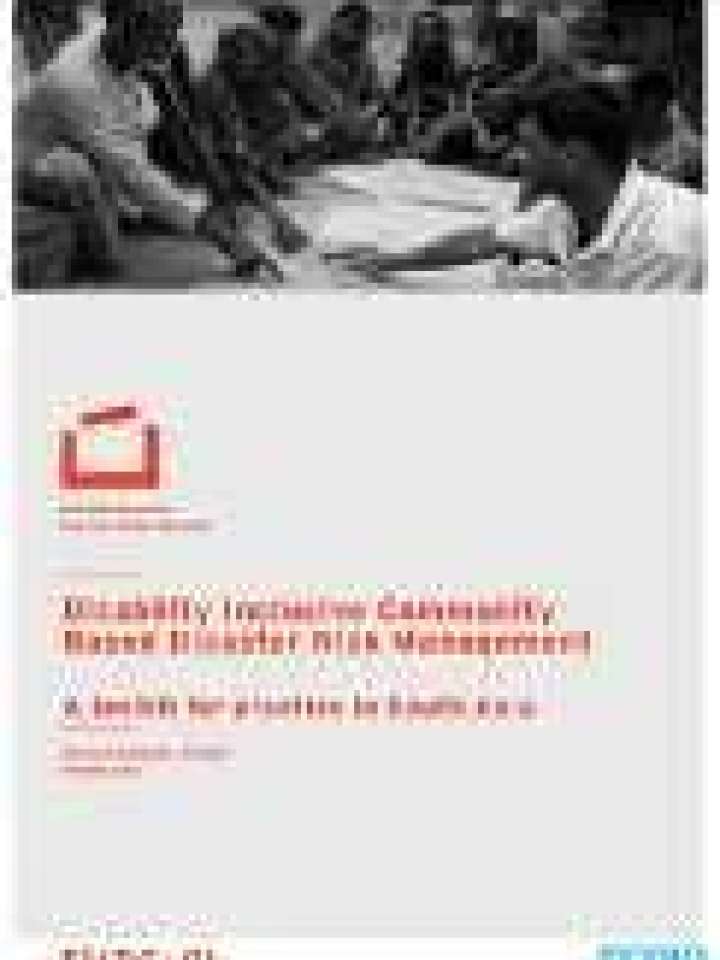Disability inclusive community based disaster risk management: a toolkit for practice in South Asia
This document proposes an inclusive approach to community based disaster risk management (CBDRM) in order to help to address the issues faced by persons with disabilities affected by disasters, ensuring that services and systems are adapted to meet the diverse needs of community members, and that all individuals are empowered to take action to reduce their own risk. It establishes the rationale for inclusion, the challenges and opportunities which exist in implementation and provides technical advice and tools for putting theory into practice. It aims to be a point of reference to be used during policy and project development, as well as a tool to support good practice in implementation. It has been designed for use by disaster risk management practitioners and policy makers who wish to understand more about how to make CBDRM inclusive of persons with disabilities.
Its content is based on knowledge and practices gathered from our work in Afghanistan, Bangladesh, India, Nepal and Sri Lanka. It combines content from pre-existing, well-tested toolkits from each of these countries to create an up-to-date guide that reflects learning from across the region. It (i) establishes the rationale for taking an inclusive approach, firmly establishing the links between disability and disasters and the need for action on inclusion; (ii) provides practical guidance on how to make core CBDRM activities inclusive and uses case-studies from across the region to bring the subject matter to life and reveal the positive impact that taking an inclusive approach has on the lives of persons with disabilities, their families and their communities; and (iii) contains a number of tools to complement the advice given in Part Two and support good practice in implementation.
Explore further

